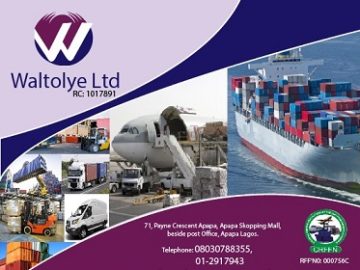Lagos State Governor, Mr. Babajide Sanwo-Olu has described the textile and apparel sub-sector of the creative industry as critical to his administration’s policies on the empowerment of Micro, Small and Medium Enterprises (MSMEs).
Governor Babajide Sanwo-Olu stated this at the opening ceremony of a three-day Source Textile & Apparel West Africa Summit and Exhibition 2022 held on Tuesday at the Convention Centre, Eko Hotel and Suites, Victoria Island, Lagos.
The Governor, represented by the State Commissioner for Commerce, Industry and Cooperatives, Hon. Lola Akande, remarked that the Summit, which was the Third Edition, tagged: “Empowering Change: West Africa, The Next Frontier For Apparel Sourcing and Investment”, came at the right time.
His words: “This Summit is coming at such an auspicious time to support our administration’s intentional efforts towards empowering MSMEs of which textiles and clothing subsector occupy a prominent position. It is my firm belief that this Summit will open up greater opportunities for this sector as the outcome of the roundtable discussions would proffer good and workable solutions to the challenges of the sector”.
The Governor commended the Federal Government for the launch of the “Nigeria Industrial Revolution” Plan that would further improve GDP contributions of the manufacturing and textile subsector.
“At this critical time, when we are poised to address observed challenges across the value chain, from farmers and textile mills that provide raw materials for the manufacturing sector including marketing and logistics, this Summit will go a long way in ensuring that the efforts that are currently embarked upon by the Central Bank of Nigeria (CBN) and the Bank of Industry (BoI) will unlock gains across the industry for different stakeholders: consumers, small businesses, premium brands, and large-scale manufacturers to forge a clear path to fully revitalise and grow the sector,” he said.
The Consul of the Indian High Commission, Mr. Chandranouli Kern, stated that India has a growing partnership with Nigeria in various economic activities of which Textile and Apparel are one. He added that his country is well represented at the Summit and called for stronger collaboration to grow the textile and apparel business in Nigeria.
“We have about 22 Indian companies showcasing their products at this Summit. It is important to note that without manufacturing, the economy cannot grow. India, which has been facilitating capacity building since 1964, can assist textile and apparel dealers in Nigeria to acquire the skill needed to tap into the global textile trade”, he said.
The President, Apparel and Accessories Manufacturers Association of Nigeria, Mrs. Folake Oyemade opined that the Summit will provide information for decision-makers and facilitate investments in textile and apparel production.
“In the last two decades, Asia has dominated the global textile trade. West Africa is the last frontier for textile and apparel sourcing but challenges such as lack of finance, infrastructure, quality labour force, slow technology adoption and inadequate logistics, amongst others, must be addressed to achieve the goal”, she explained.
The representative of the Indian Chamber of Commerce and Industry, Mr. Raul Chakravorty said his organisation is happy to work with Nigerian textile and apparel dealers, most of whom are in Lagos.
The Chief Executive Officer of Leoht Africa and the organiser of the event, Bunmi Aliyu, described Lagos as a place of commerce where creative minds drive their ideas, stressing that West Africa stands to gain numerous benefits as the next frontier for textile and apparels sourcing.
She, therefore, charged policymakers and entrepreneurs to take advantage of the inherent potential in the sector for the benefit of West Africa and Nigeria in particular.

















